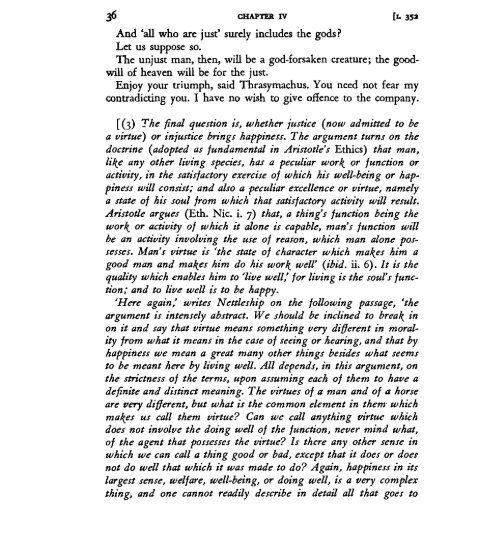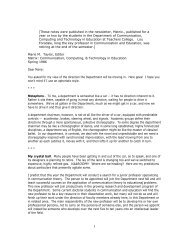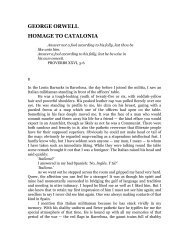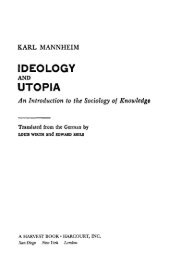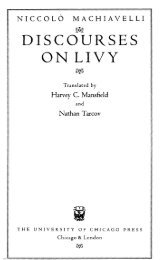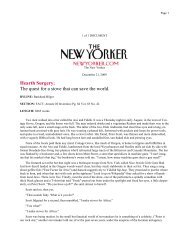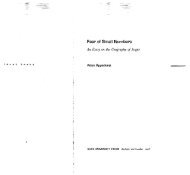THE REPUBLIC OF PLATO - Studyplace
THE REPUBLIC OF PLATO - Studyplace
THE REPUBLIC OF PLATO - Studyplace
You also want an ePaper? Increase the reach of your titles
YUMPU automatically turns print PDFs into web optimized ePapers that Google loves.
CHAPTE.R IV [I. 352<br />
And 'all who are just' surely includes the gods<br />
Let us suppose so.<br />
The unjust man, then, will be a god-forsaken creature; the goodwill<br />
of heaven will be for the just.<br />
Enjoy your triumph, said Thrasymachus. You need not fear my<br />
contradicting you. I have no wish to give offence to the company.<br />
[(3) The final question is, whether justice (now admitted to be<br />
a virtue) or injustice brings happiness. The argument turns on the<br />
doctrine (adopted as fundamental in Aristotle's Ethics) that man,<br />
like any other living species, has a peculiar work or function or<br />
activity, in the satisfactory exercise of which his well-being or happiness<br />
will consist; and also a peculiar excellence or virtue, namely<br />
a state of his soul from which that satisfactory activity will result.<br />
Aristotle argues (Eth. Nic. i. 7) that, a thing's function being the<br />
work or activity of which it alone is capable, man's function will<br />
be an activity involving the use of reason, which man alone possesses.<br />
Man's virtue is 'the state of character which makes him a<br />
good man and makes him do his work well' (ibid. ii. 6). It is the<br />
quality which enables him to 'live well,' for living is the soul's function;<br />
and to live well is to be happy.<br />
'Here again,' writes Nettleship on the following passage, 'the<br />
argument is intensely abstract. We should be inclined to break in<br />
on it and say that virtue means something very different in morality<br />
from what it means in the case of seeing or hearing, and that by<br />
happiness we mean a great many other things besides what seems<br />
to be meant here by living well. All depends, in this argument, on<br />
the strictness of the terms, upon assuming each of them to have a<br />
definite and distinct meaning. The virtues of a man and of a horse<br />
are very different, but what is the common element in them which<br />
makes us call them virtue Can we call anything virtue which<br />
does not involve the doing well of the function, never mind what,<br />
of the agent that possesses the virtue Is there any other sense in<br />
which we can call a thing good or bad, except that it does or does<br />
not do well that which it was made to do Again, happiness in its<br />
largest sense, welfare, well-being, or doing well, is a very complex<br />
thing, and one cannot readily describe in detail all that goes to


